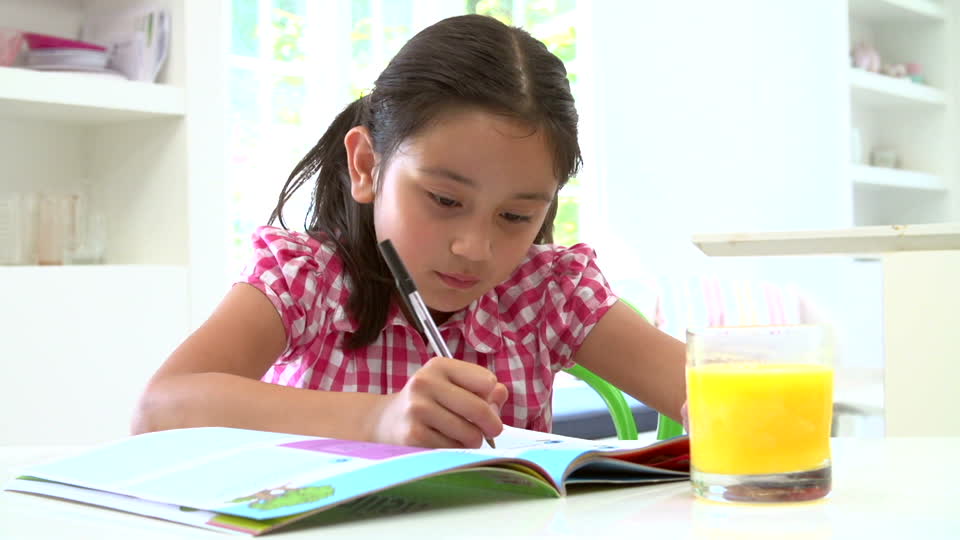The Primary School Leaving Examination (PSLE) is a milestone that worries many parents and students in Singapore. It is our children’s first major examination and is the conclusion of a six-year primary school education – and therefore must be treated as the end of a three-year journey of upper primary school, rather than just a major exam at the end of the P6 year. Preparation is key, so how can help your child gear up for this big milestone called PSLE?
Start early
The concept of the PSLE journey is a multi-year one. The children are not just tested on Primary 6 work but on a full range of topics that have come up during their upper primary stint.
It is crucial to start early, by the Primary 5 year, so that your child is not overloaded with too much work in the final year of primary school. PSLE burnout is very real and must be avoided at all costs. Starting the journey earlier means that your child does not have to cram too much learning into a short span of time.
This means that ideally, PSLE parenting should start from the end of the Primary 4 year! While it is important to take time out to unwind and relax from the academic year, be sure to include revision on their list of things to do every week so that they do not fall out of touch with their work and have to put in more effort to catch up in the following year.
Read also: Important Goals Your Child Should Be Setting to Excel in School
Work out a PSLE preparation plan with your children
Many young children are visual and kinaesthetic learners – meaning that they learn better when they see things for themselves and use their hands. Harness these two learning strategies to help your children formulate a plan of attack.
Sit down with your children at the beginning of the school year and mark out important milestones on a calendar (it is even better if the children draw the calendar themselves). These dates may include school dates (tests and exams), personal dates (birthdays and holidays) and any other date that might be significant to them. By putting in fun, positive things to look forward to along with the academic dates, your children will not just view the calendar as a dull, stressful reminder of work.
Get them to figure out when they need to start revising and put those dates in. They can decide what subjects they would like to revise and when. Decorating this calendar and plan themselves also gives the children a sense of ownership over their year.
Some people prefer to do short calendars, such as covering only term by term, so that children do not grow bored of their calendar early on and give up. An entire year can be too much for a young child to grasp fully. The children may also like to create a weekly planner for after-school revision and activities so that they always know what they should be doing at any time.
Tip: Don’t forget to schedule in free and easy relaxation time! Kids should not be working around the clock.
Review past work and examinations to figure out weaknesses
Many children do not actually know how to study. When parents tell their kids “Go and study!” they have the best of intentions, but they are moot if the children have no clue where to start. It may seem obvious to adults, but studying is actually a skill that can help your child study and gear up for PSLE exams.
One good way to start is to go through past work such as daily homework, tests and exams together with your child. Ask them to identify which sections are their weakest, and then discuss together how they can work to improve those areas. Directed studying is much more effective than simply getting kids to do full papers over and over again.
Furthermore, remember that the lead-up to PSLE can be very stressful and overwhelming for children. Breaking up subjects and topics into manageable chunks can greatly reduce the information overload for kids and allow them to take some control over their learning.
Read also: Learning from mistakes: How to encourage children to learn when they don’t get it right
PSLE preparation: Work hard and play hard too
Some parents find it very hard to allocate time to leisure activities such as movies, cycling, or even two hours during the weekend for mindless TV watching or gaming on the ubiquitous iPad.
However, it is important to keep in mind that our children are not robots. Just as we need downtime ourselves, we have to relax and allow our children time to let off steam, get fresh air, and engage in physical activities that help them to recharge and unwind. This will help them be refreshed and ready to take on another round of revision.
Remember that ultimately, the PSLE is a milestone that your children have to conquer by themselves. Parenting is not about spoon-feeding our children, but about knowing when and how help your child gear up for PSLE with the tools they must use on their own to succeed.
Written by Danielle Hee
Is your child’s PSLE year coming up?
Find out how your child can benefit from the learning techniques covered in our comprehensive PSLE Success™ programme.

